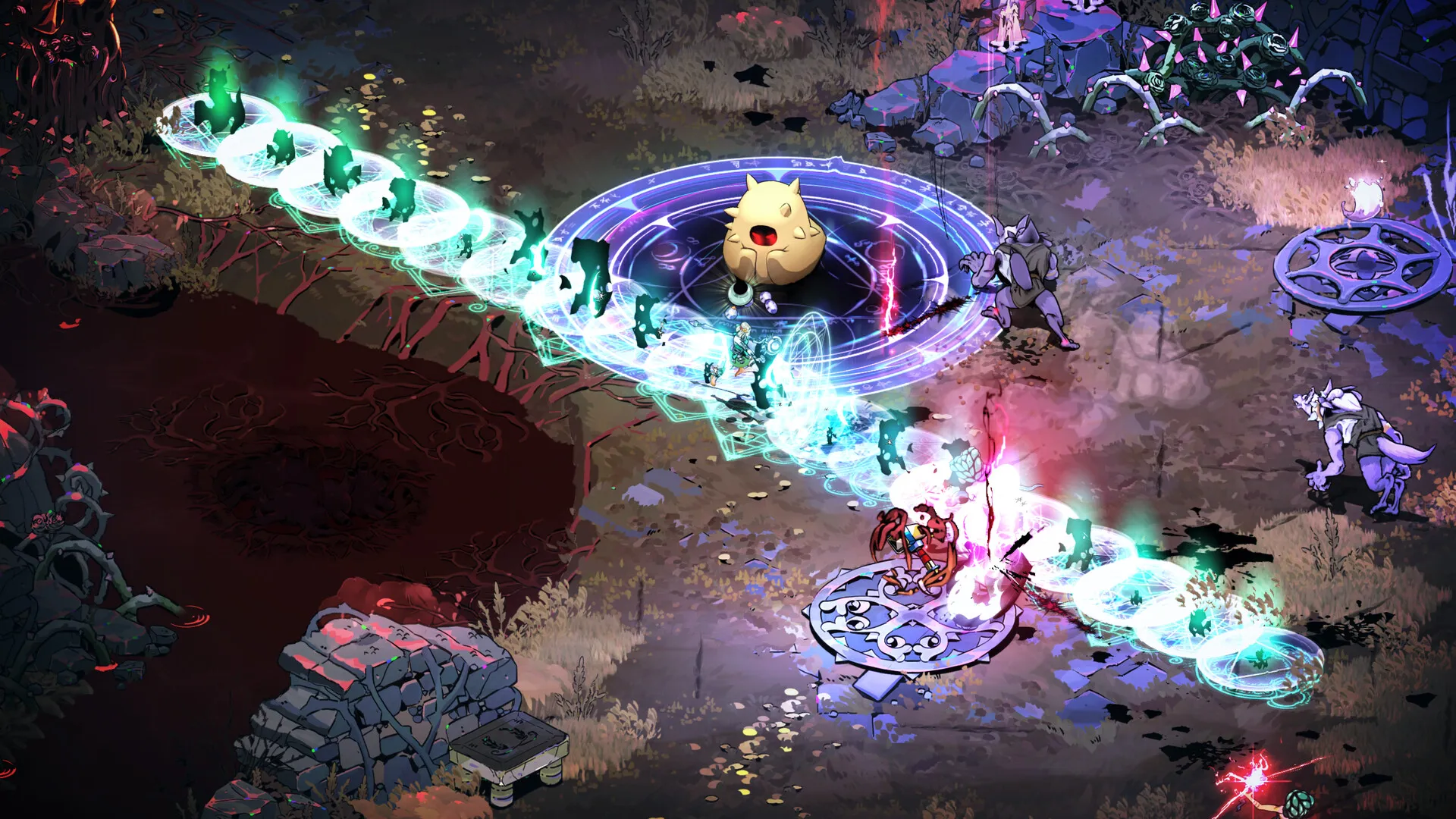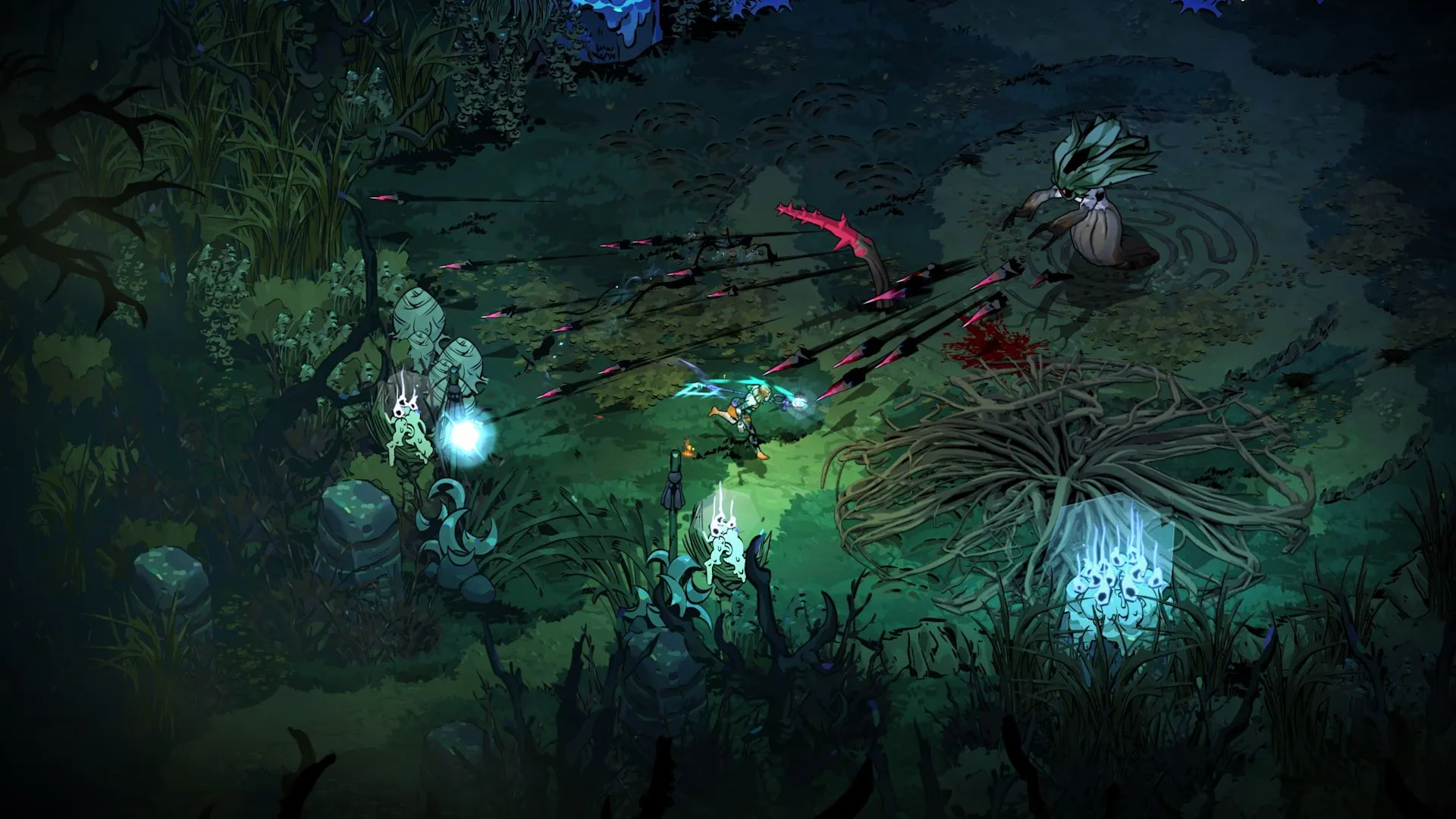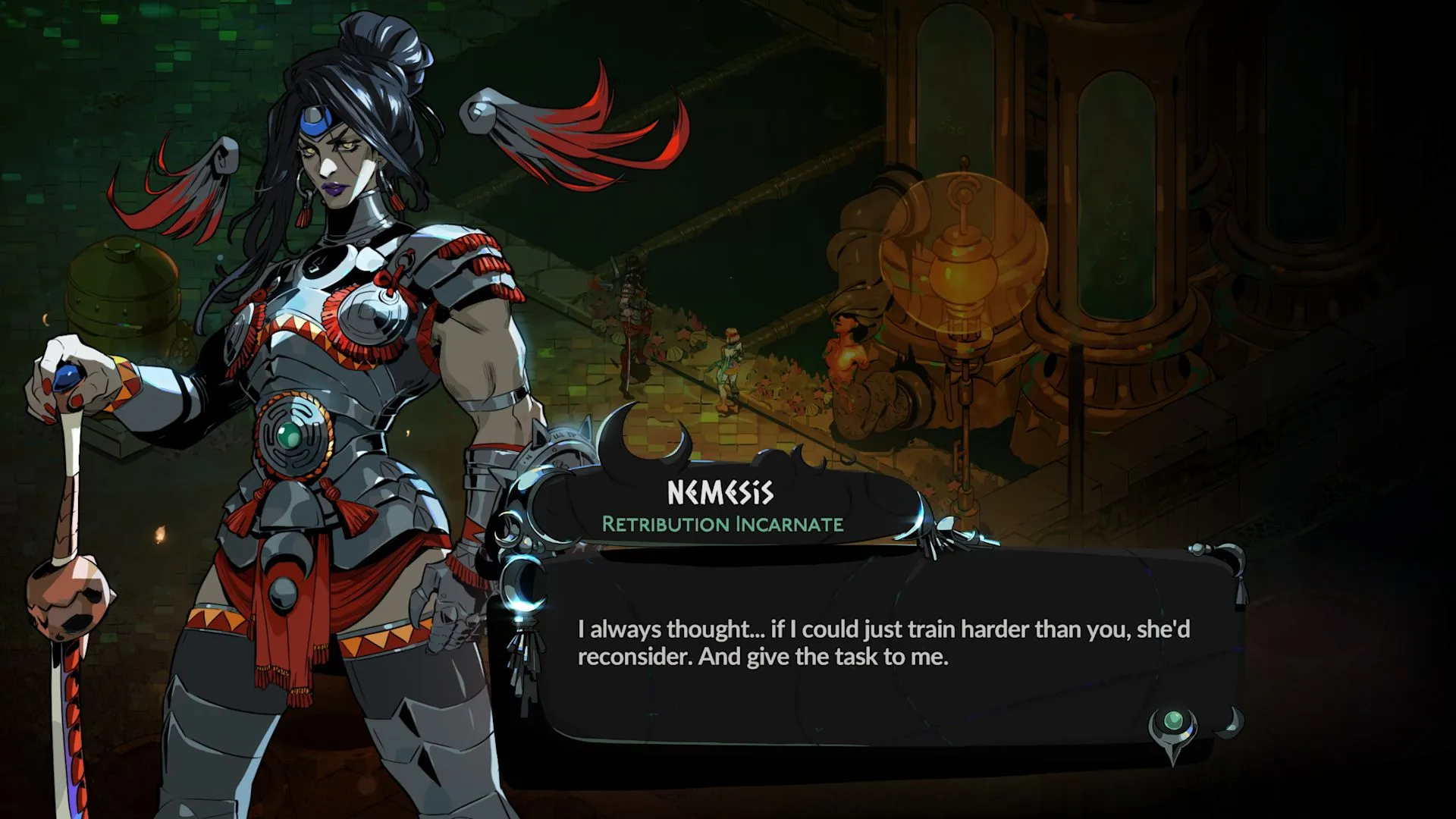


Hades, which left early access back in 2020, is one of the best and most influential roguelikes of all time, so there's perhaps no greater sign of the talent at Supergiant Games that their own follow-up, Hades II, blows it out of the water. The formula is refined into its ultimate form; the combat is more complex (but just as intuitive), and the story is grander and more thrilling. Hades II is the pinnacle of the roguelike genre, a position I previously granted its predecessor, but one that its sequel has handily earned.
For the unfamiliar, the Hades games are action roguelikes, where each run has players gathering an arsenal of upgrades (known as boons) to turn their character into a god-slaying weapon. After each run, most of which will end in a death, the player immediately returns to their home base, where they can talk to their companions to access new story content and use the rewards from the last attempt to make themselves even stronger. Like much of the design in the Hades games, it's a simple yet genius gameplay loop, turning losses into immediate gratification and fueling you to do another run as soon as possible.
Hades II takes place an undisclosed number of years after the first game, and now centers on Melinoë, the younger sister of Zagreus and a daughter of the titular god of the underworld. That god, along with most of the underworld's inhabitants we came to know and love in Hades, has been imprisoned by Chronos, his time-wielding father. Rather than break out of Hell, Melinoë starts each run by breaking into Hell, working her way down to Tartarus to thwart her grandfather. The way Hades II recontextualizes familiar locations and characters reminds me of the relationship between The Legend of Zelda: Breath of the Wild and Tears of the Kingdom (a comparison I do not invoke lightly), where I'm equally excited to try new things as I am to revisit old favorites.

Melinoë is armed with six new weapons, each completely different from the last, ranging from a pair of magic wands to a heavy-hitting battleaxe. To make combat even more complex, each attack also has an omega form, unleashed by holding down the attack button, which creates more powerful, sometimes completely different moves. A normal attack with the twin blades, for example, unleashes a combo of slashes and stabs, but the omega version teleports you behind the nearest enemy for one explosion of damage. It's such a simple and intuitive mechanic that I sometimes forget it's not present in the original.
The amount of new content in Hades II could be overwhelming, but it's introduced at such a steady rate that it never feels that way. On my 40th run, in a save file where I had already fought every boss the game had to offer, I unlocked the sixth weapon and encountered a god whose boons I had never seen before. Even 40 runs in, I discovered elements that make the game feel entirely new. There is a finite amount of improvements – it's only a game, after all – but it incentivizes discovery so much that you feel like there's something new to unlock around every corner, and for many, many hours, that's true.

The reason Hades II has its hooks in me, above all else, is the way it rewards the player. This consistent introduction of unlockables, including weapons, boons, arcana cards, familiars, companions, fish, seeds, minerals, and more, means that even when you fail a run, that one failure is promptly interrupted by a stream of rewards. It's hard to leave a session of Hades II feeling frustrated because it's explicitly designed to make you feel the opposite, and I gladly welcome the relentless flood of dopamine.
The plot is similarly structured around defeat, with each loss unlocking new dialogue with those around you. This was also the case in the first game, but Hades II is larger in ways I won't spoil, and the fact that the narrative feels completely seamless and linear regardless of your actions is extra impressive here. And despite Hades II expanding the scale of this world of Greek gods significantly, dialogue and story maintain their character-first approach. You often learn who a person is and what they care about before even learning their name or relationship to the main characters, and I greatly prefer that. The narrative, while fairly straightforward, ends in a place I did not expect, but loved, especially its mythological take on generational trauma.

These characters also continue the series tradition of being beautifully designed, with each new god or titan introduced blowing me away with their striking, modern designs. Overall, the game looks and runs gorgeously, and that includes my Switch 2 copy, where I noticed no performance issues. I also need to mention the music; Darren Korb has done it again, and I especially enjoyed hearing themes from the first game being reimagined in new ways. There's also one dynamic, musical boss fight that's particularly impressive, with the backing track altering when the respective musicians are removed from the battlefield.
Sixteen months of early access have sculpted Hades II into a truly unforgettable experience. After roughly 50 hours and 53 runs between its first iteration and final release, I'm somehow still itching to go back for more. Melinoë's journey showcases Supergiant's expert world-building, combat design, and sharp dialogue to a degree that somehow surpasses one of my all-time favorite games. Godlike, indeed.
Alex Van Aken contributed to this article.

Explore your favorite games in premium print format, delivered to your door.